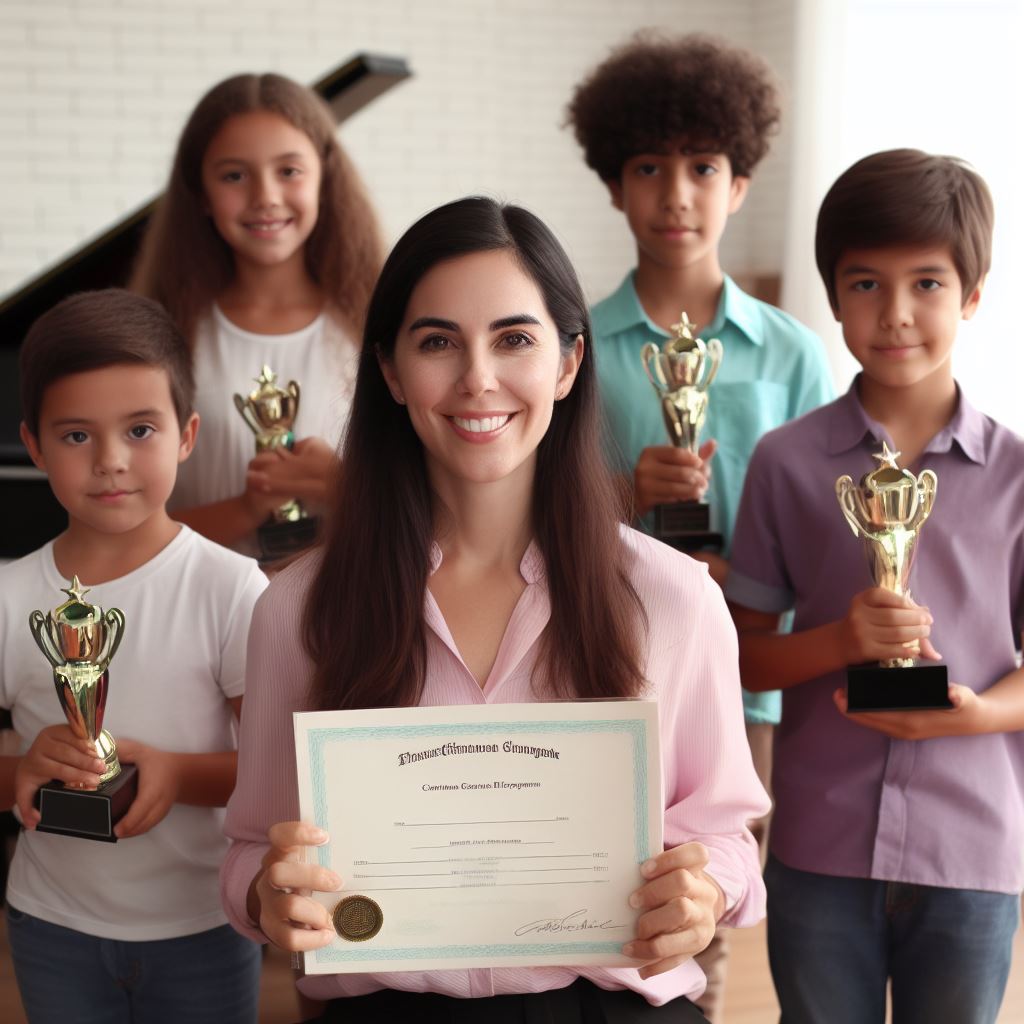The Competition-Winning Piano Teaching Philosophies of Highly-Regarded Teachers

Do you want to know how it is that certain highly regarded piano teachers have a knack for producing high-visibility, competition-winning students? Examine their teaching philosophies.
Introduction
In every community there is always that one well-known piano teacher who has all the best students. Their students always do well at festivals, win competitions, and go on to study music at prestigious colleges and conservatories. Throughout the local community and even beyond, when someone mentions that they study with So-and-So, eyebrows rise, and heads turn.
As a piano young teacher, I admired these teachers and wondered how to become one of them. I had a better education and more performance experience than any of the ones in my community. I also assumed that I knew as much about teaching than any of them, if not more in some ways. (Spoiler alert: I was both arrogant and wrong.) What stood out to me, though, were the most glaring differences:
- They lived in affluent neighborhoods.
- They had such established reputations, that the best students sought them out.
I was new to the community and the places I could afford to live (and work from home) were limited. At the outset of my career, I thought that those were the things I should target if I wanted to join the ranks of highly regarded teachers whose students always win competitions.
Fast-forward many years to what I consider to be a career in full bloom. I’m not going to tell you that location isn’t important. That, plus reputation, are surely critical factors in a teacher’s success. Indeed, being a college music professor definitely gives you visibility and a leg up in the pre-college piano teaching world. However, a teacher who lacks the skill and vision to work with exceptional students would not be able to to parlay those advantages into a “highly regarded” situation, college professor or not.
“Skill” is a big topic that would require an entire book to fully discuss. But the very core of this skill – its foundation – is “vision.” That’s what I’d like to examine in this article.

The vision that a teacher has for their work is described in the education community as a “teaching statement.”
A teaching statement is a written expression of an individual’s personal views on teaching. It often including the methods the candidate practices and the educational styles they intend to make use of. It’s also important for a piano teacher’s statement to describe who their intended students are, because “piano teaching” includes a host of subcategories and specialties.
In the world of education, we sometimes call teaching statements “teaching philosophies.” Often – especially in the piano teaching world – we substitute the word “pedagogy” for “teaching.”
That highly regarded teacher of whom I spoke in the introduction … their teaching statement might be something like this:
“I don’t take beginners. Instead, I take only students who have demonstrated exceptional aptitude and accomplishment, and I turn them into high school seniors with the performance ability to pass a Juilliard audition.”
Dr. Sophia So-and-So, NCTM
Or it might look like this:
“l take kindergartner beginners and turn them into high school seniors with the performance ability to pass a Juilliard audition. Furthermore, I see to it that they also possess the drive, ambition, and self-sufficiency to thrive in that environment, and the theoretical, cultural, and historical background knowledge to fit in.”
Samuel So-and-So, NCTM
Or some combination of these two conservative statements. These may be incomplete statements in as much as I haven’t included method, style, rationale, or examples. Nonetheless, they capture the essential goal of such a teacher’s work. The corporate world might call these “mission statements.”
Do you want to be this kind of highly regarded teacher? Adopt a mission statement like this as the core of your teaching philosophy.
I’m sure that many teachers would be thrilled to have one of their students go on to a world-class conservatory. Yet it is the minority of pre-college piano teachers who have this goal at the very core of their teaching and whose day-to-day work is designed to realize it. I say this not based on a definitive study or scientific survey but based on many years of professional life.
Many teachers don’t have an explicit teaching statement. If you were to derive one from observing them, it might be something like, “I’m going to turn you into a piano player like me.” Or “I’m going to guide you through this method book.” I would suggest that the former unstated philosophy might lead some teachers down that “highly regarded” path, but not the latter.
Other teachers may have explicit statements that differ significantly from what I’ve described in this article. Those statements may be perfectly legitimate or even preferable. They may be marvelous teachers who unfortunately don’t enjoy the prestige of the competition-winning sort. That’s a shame, and the topic of another post.

Exceptional students are rare.
The very word “exceptional” demands that this be so. If your economic situation requires you to teach full time, it may not be feasible for you to expect to fill your studio with only exceptional students. My casual observation is that for most of these highly regarded teachers, exceptional, pre-college students make up only part of their income. The rest comes from other sources.
Conclusion
Highly regarded piano teachers who produce exceptional students have clear teaching philosophies – stated or unstated – designed to create and foster that type of student. They also have the skill to back up their vision. Although there are many challenges and limitations of pursuing this kind of teaching, such as the rarity of exceptional students and the economic realities of teaching full time, the proper teaching philosophy forms the foundation for success for such a teacher.
References: Indeed, The Piano Education Page.